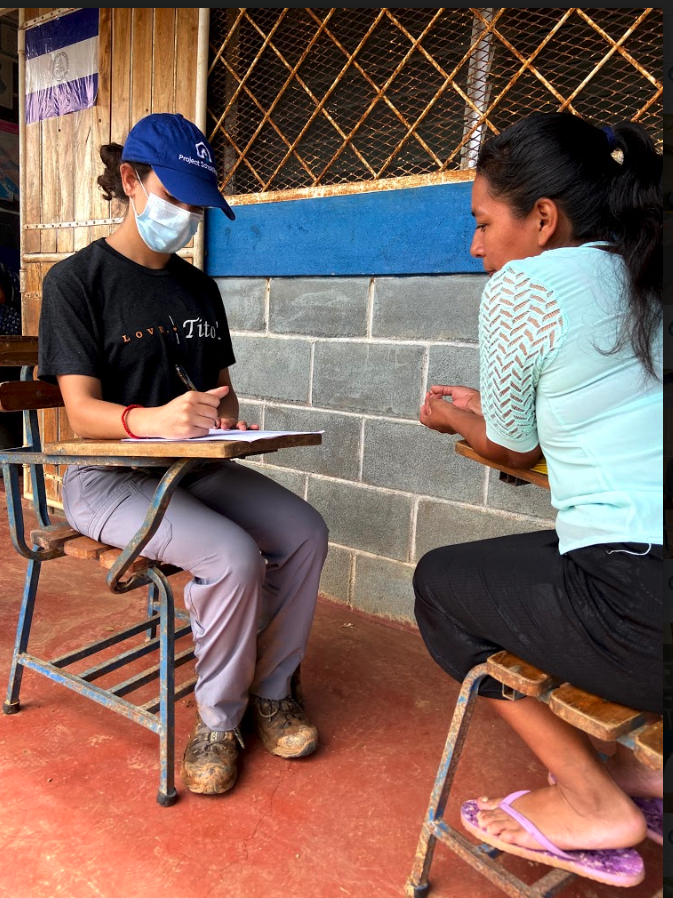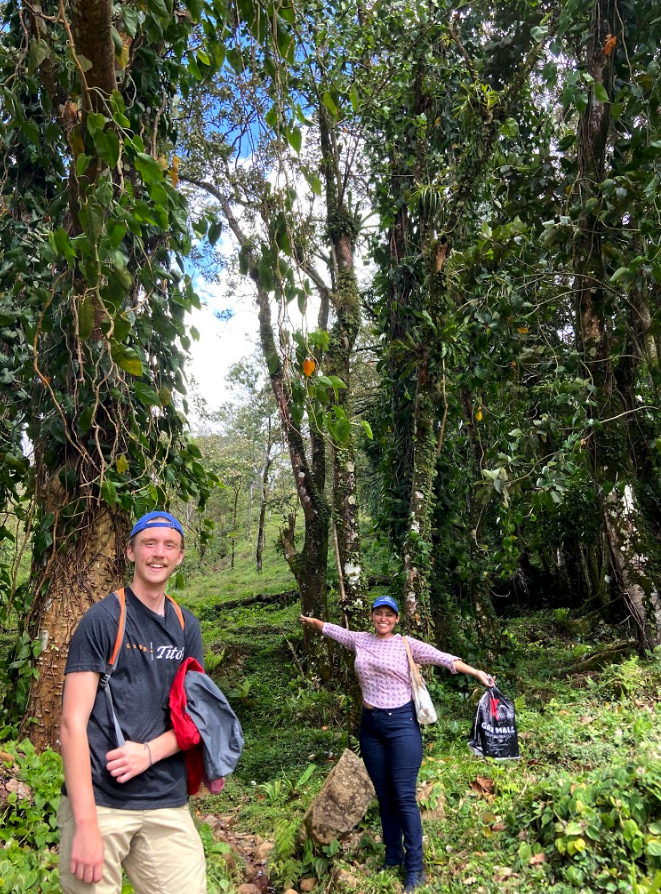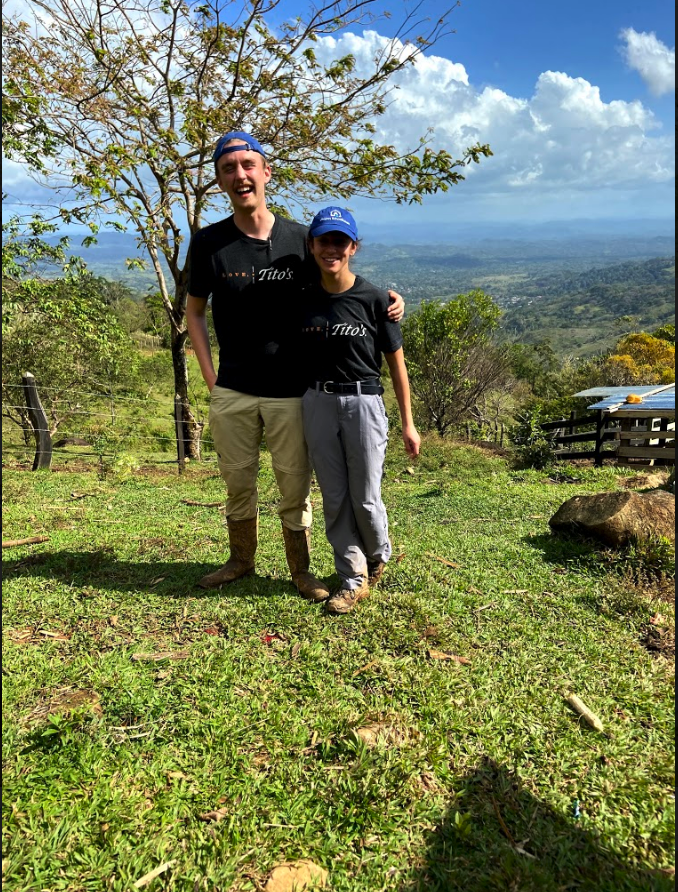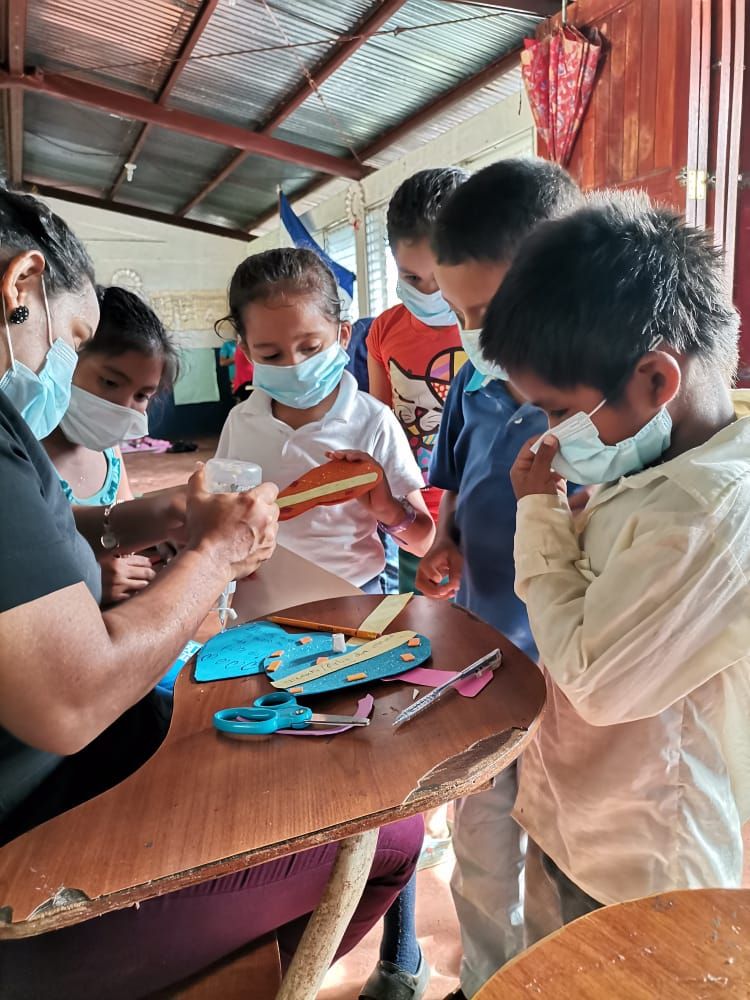
While we build school buildings, the Ministry of Education employs and pays the salary for the teachers and sets all curriculum requirements. Typically, one teacher tries to teach 40 children, grades 1-6, in the same classroom. Schools are under-resourced with inadequate materials, overcrowding, and no extra-curricular activities to keep students motivated and engaged. Widespread poverty, low levels of adult literacy and lack of economic activity necessitating an education are demotivating to school attendance.
We are currently piloting after-school programs to provide children with opportunities that encourage them to stay in school. The goal is to create healthy, dynamic, and stimulating environments that respond to students’ interests (i.e. sports, arts, academics, leadership and service, science, and technology) and develop core life skills to help them succeed in school and beyond. These programs are led by university student volunteers, providing role models for the younger children, strengthening the social fabric by mobilizing students, teachers, parents, and volunteers, as partners in development. The longer-term goals are to see increased school attendance, higher promotion rates and an increase in adult community engagement in the schools. We are particularly focused on providing female university student volunteers to lead the Clubs, providing female role models and encouragement to stay in school. Sequenced after a water system and school project, the Club has the opportunity to tutor the children who have fallen behind, helping them catch up in their studies and on a path towards educational success. The Club is so well received by the parents, teachers and children. Here is an update of the first session, from Norma, our Programs Coordinator extraordinaire!
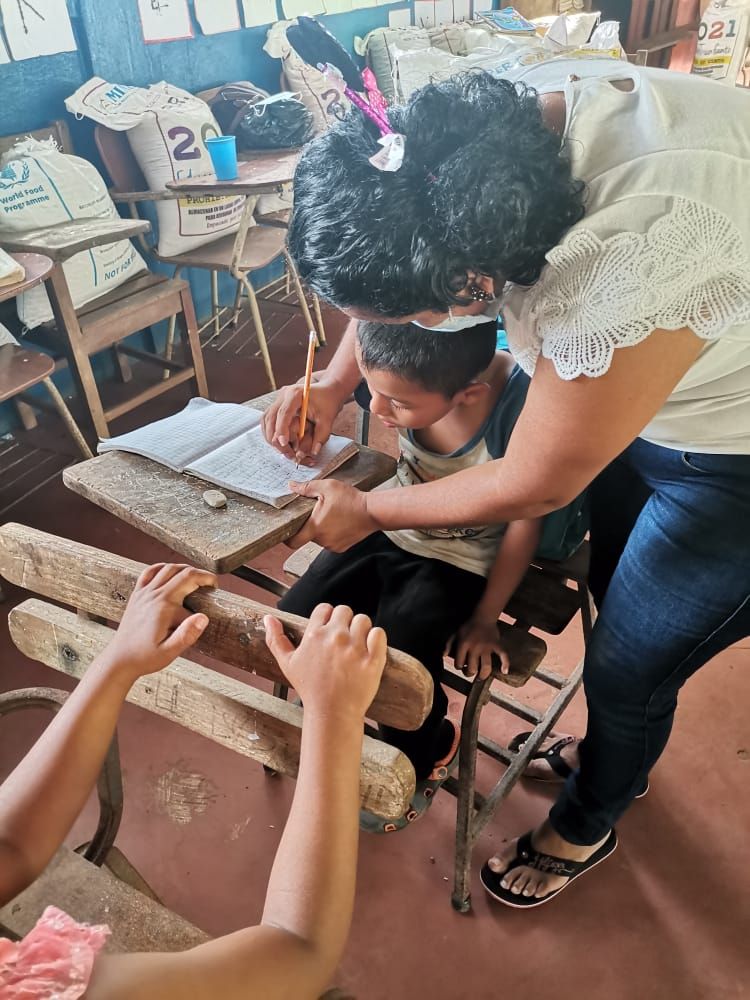
“We start the opening of the club at 1 in the afternoon. Giving thanks to God for allowing us to be in the community together with the boys and girls, and to be able to start this new program with the aim of reducing school dropouts, also helping these children in their classes where they have more difficulty through these clubs.As we began, a moment of joy was shared with the little ones. You could see the happiness, playing and dancing among them. Having the presence of 35 boys and girls, from first grade to sixth grade, we divided them into two groups, Jasmina and Josseling working with the fourth, fifth, and sixth graders as they worked on the reinforcement of mathematics. In the beginning, a review was made of History, Spanish and Mathematics to see the level of knowledge they have and it was then that we realized that these children have difficulty in division and multiplication.
Something very important was in realizing that they do not know the multiplication tables, which would make the mathematical exercises easier. So, we began practicing the tables by making a flipchart to have in the section for practice. Cristian and I work with preschool, 2nd and 3rd grade school children who cannot read.
These children have great difficulty in writing and have not yet learned to read. The preschool and 1st-grade children were grouped together and enjoyed stories being read to them, with the books in the new storybook library.
I worked with the second and 3rd grade children. They have difficulty, they do not know all the letters, it is difficult for them to form words, I made cutouts of the letters of the alphabet on colored sheets so that the colorful letters catch their attention. They also have difficulty in Math, not everyone knows the numbers or multiplication tables. There was a moment when we were also playing with dynamic songs.
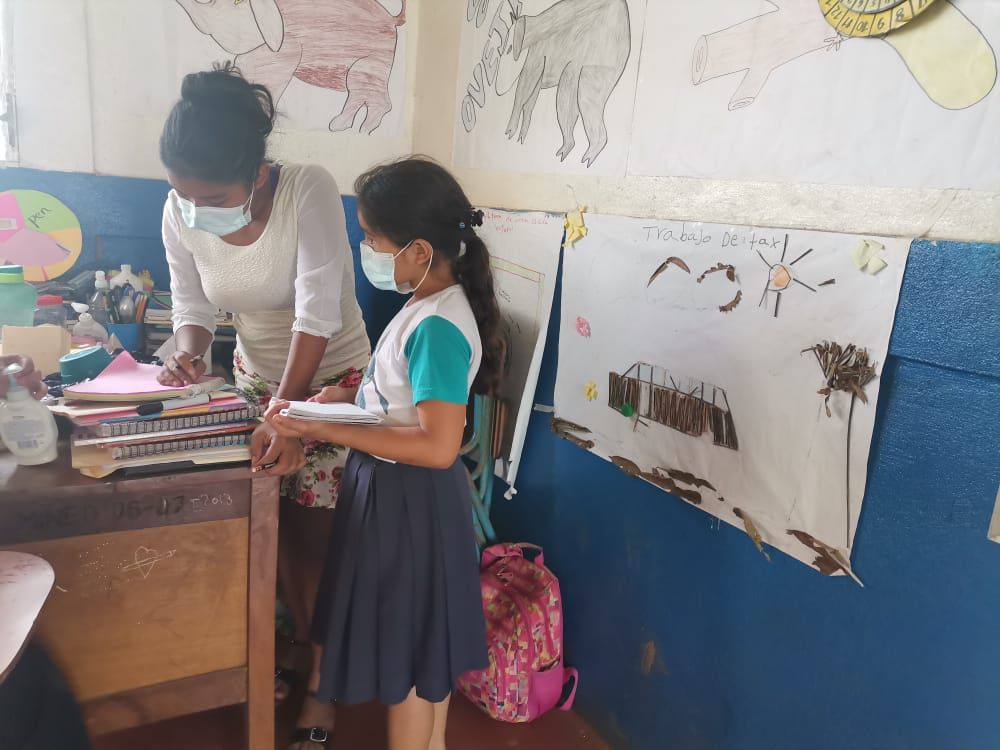
There is much to do with these children, and we hope we can achieve our goal to help them overcome the struggles that lead them to stop coming to school. You can see the difficulty the children have. I think it is because of the teacher’s time, she works with six grades together, so she does not have time to teach each grade individually.
These two days the participation and dedication of the children was excellent. They are enthusiastic and happy. You can see that they are interested in learning and practicing and excited about this opportunity. “
Le queremos agredecer a nuestra coordinadora, Norma Valdez por su trabajo con este proyecto.
